Hi, this is Jessica from Mama In A Stitch blog and today I’d like to show you how to knit the “broken rib” stitch. This is a super easy pattern that you can try once you’ve got knit and purl mastered. If you’re a beginner wanting to stretch your skills just a bit, this is for you! The stitch is similar to the rib stitch, but it creates a fabric that has less elasticity and a really cool texture. You could make so many different projects with this pattern. Imagine scarves, washcloths and more!
Feel free to follow along below as I show you how to knit this simple yet lovely stitch.
Pattern
For this pattern I used Lion Brand Heartland Thick & Quick, and US Size 10 Knitting Needles
Cast on 9 stitches
Row 1 Knit across row
Row 2 *P1, k1* – repeat from * to * across row – end with a purl stitch
Repeat rows 1 and 2 for as long as you’d like
Picture Tutorial:
Cast on 9 stitches. Knit across row.
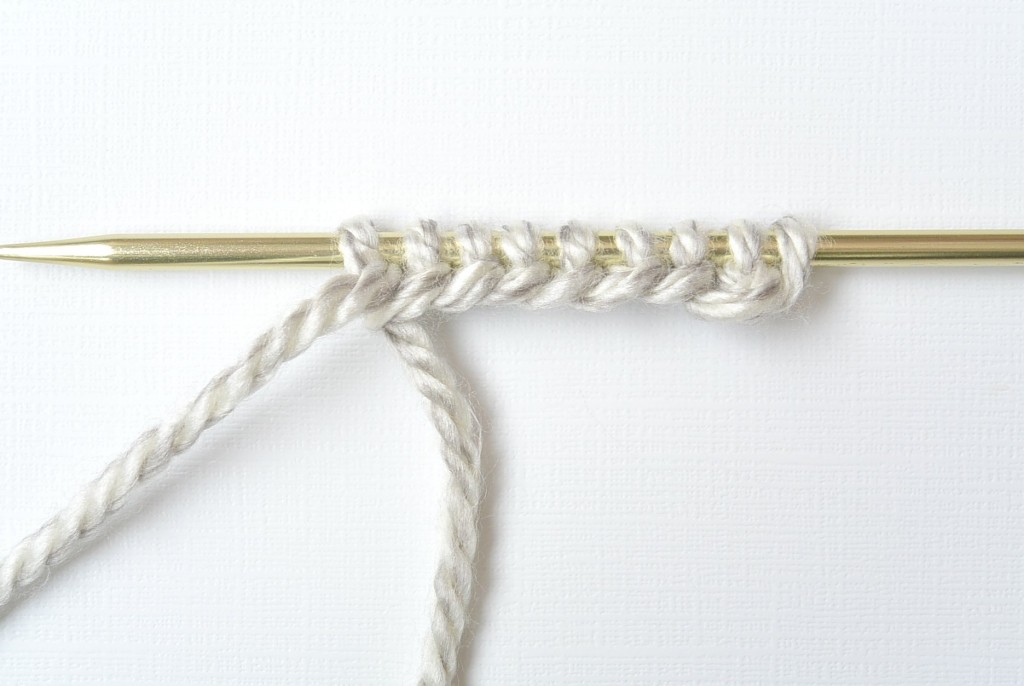
I knit continental style, so this is what it looks like as I knit the row
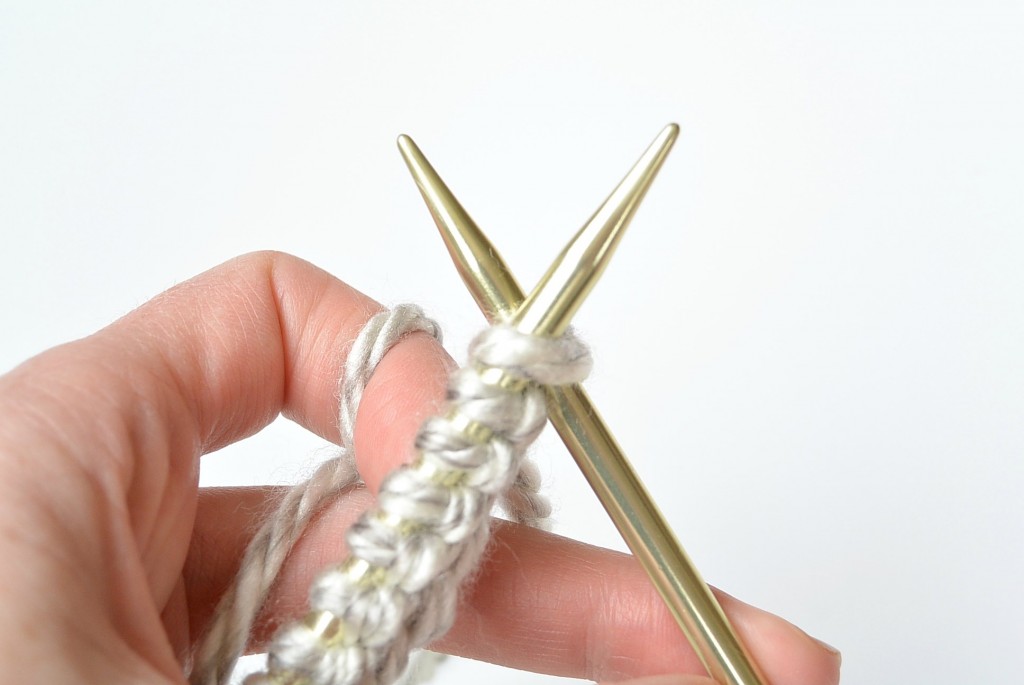
Purling the first stitch of row 2
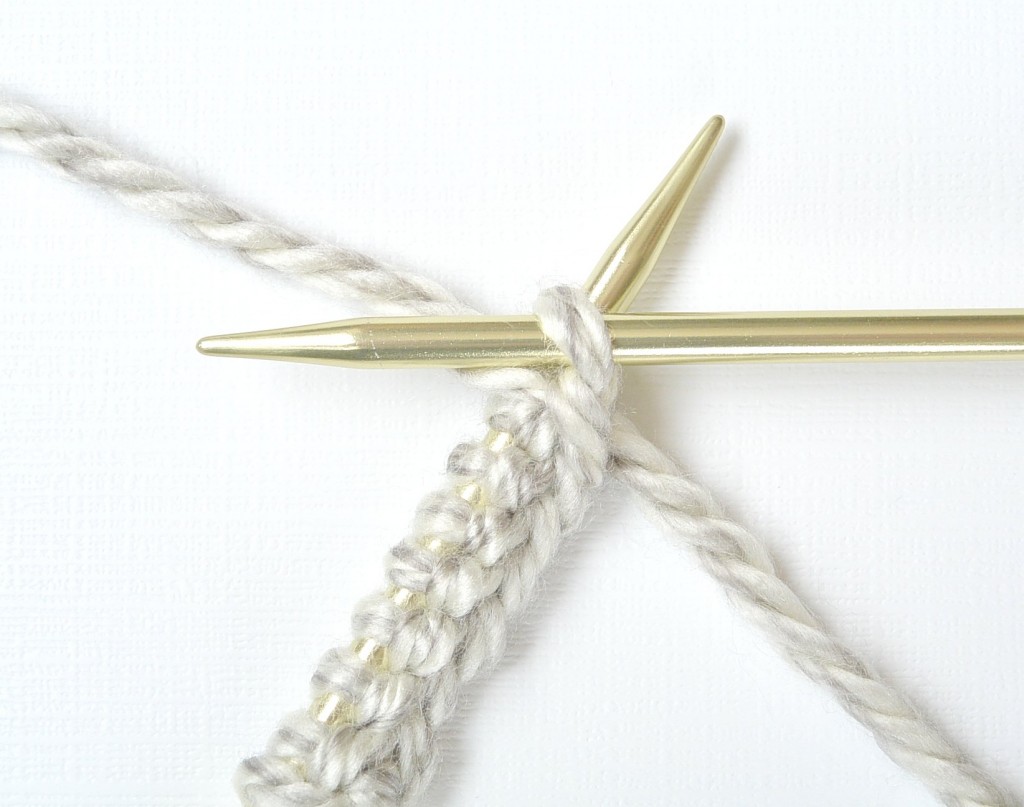
Doesn’t it make a really lovely texture?
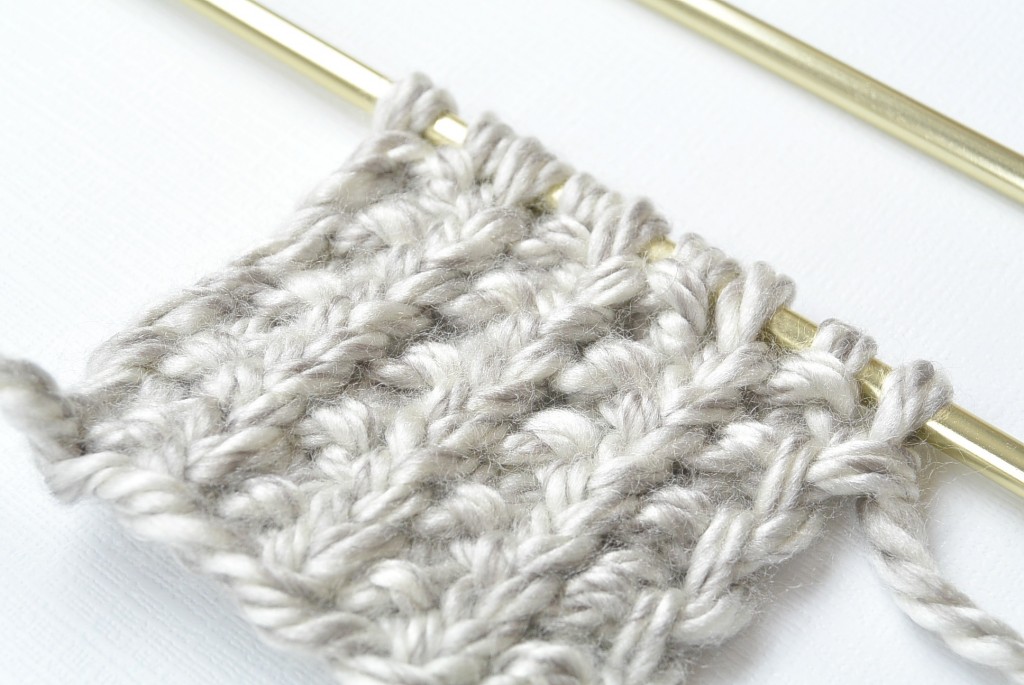
This is what the reverse side looks like. It is quite nice too!
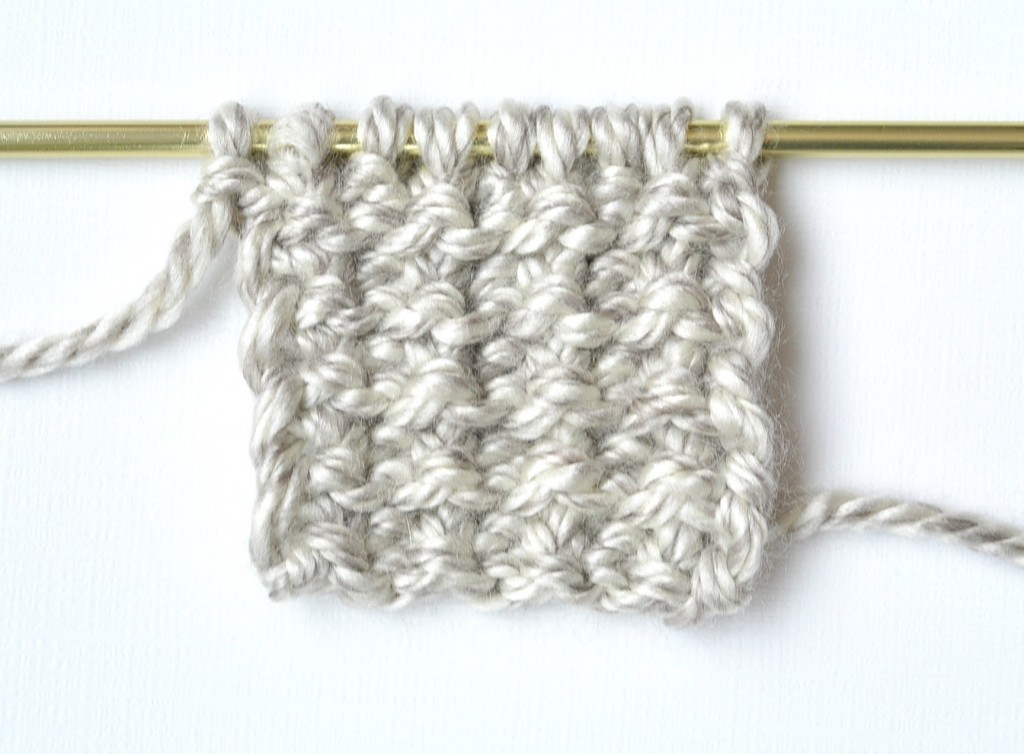
Here’s a small swatch that I did with worsted weight yarn. Feel free to try this out with a variety of yarn and needle sizes!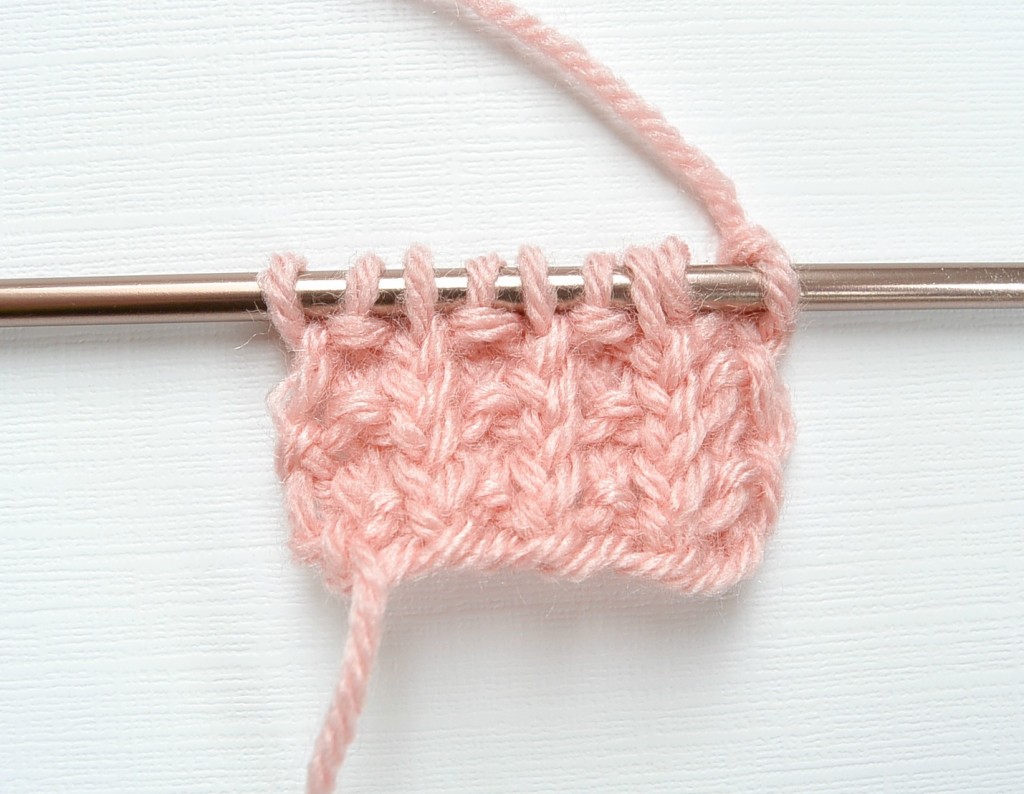
I hope you’ve enjoyed learning this new, super easy stitch with me today.
Have you tried this stitch before? What would you like to make with this pattern?


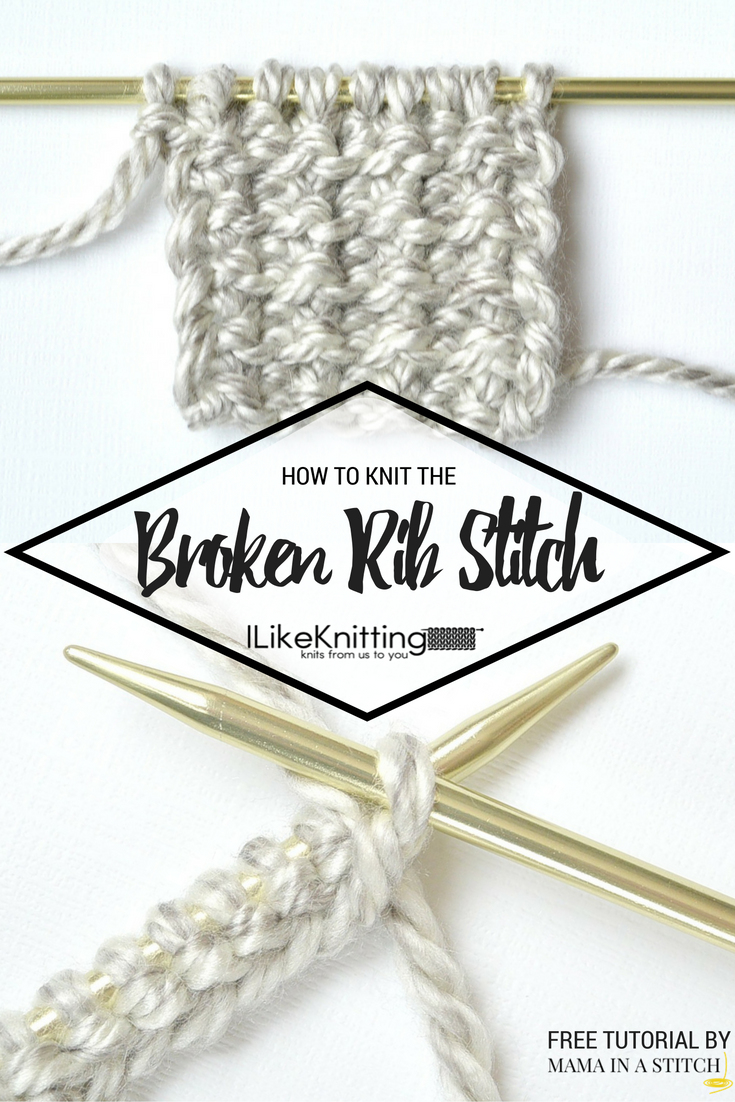

I like this pattern for stocking style hats. Try to do this with just a single strand of yarn and you have a hat that is reversible and two different textures. I also use it for dishcloths since it has a rough side and a smoother side.
Will try this we knit here for the homeless and shriners hospital in Montreal Canada married 55 yrs and love to knit. thanks
Cant wait to try this stitch!
Enjoyed reading the comments and cant wait to try it!! Thanks
Adorable. Funny, though. I had to read it several times to FINALLY realize it was knit one row, then P1,K1 row. LOL. Makes a lovely pattern.
Is it necessary to cast on an uneven number? Or does it make any difference?
If you are knitting this stitch for something in the round, an even number of stitches is best. For something flat, such as a dishcloth, using an odd number of stitches is easiest. The pattern works equally well if you *K1, P1, repeat from * across. That way your first stitch is always a knit and it keeps your edge stitches consistent.
Broken Rib means just that — the usual rib pattern is “broken” — that is, those ribs are disrupted by one column being in garter stitch — each row in that column is opposite what it was the row before.
So you CAN either knit or purl every second row (same thing really) and you will produce that ‘break’ in the usual pattern, and it will look exactly the same (the ‘front’ becomes the ‘back’). We normally find knits easier to do than the purls, so this pattern suggests knitting every plain row. However, if you knit Portuguese style, this works great for purling!
Note that this will be a little wider than regular rib, and won’t have quite as much elasticity, but still a fair amount.
What do you do after purl first stitch in row 2? I don’t understand the concept of broken rib BUT it has caught my interest. Thanks for this.
I mean pulled it is lovely for a sweater band
I did this stitch many times but instead of knit l pulled try it. It comes out lovely.
Thanks for pattern
Thanks for beginning knitting information! !
Love this pattern. Have you tried it with two yarn colors? Want to try for the first time a pattern with two colors. We definitely use this pattern, even if it’s with just one color. Thank you.